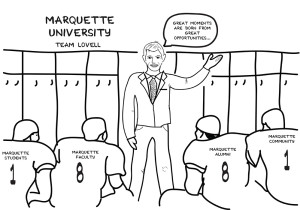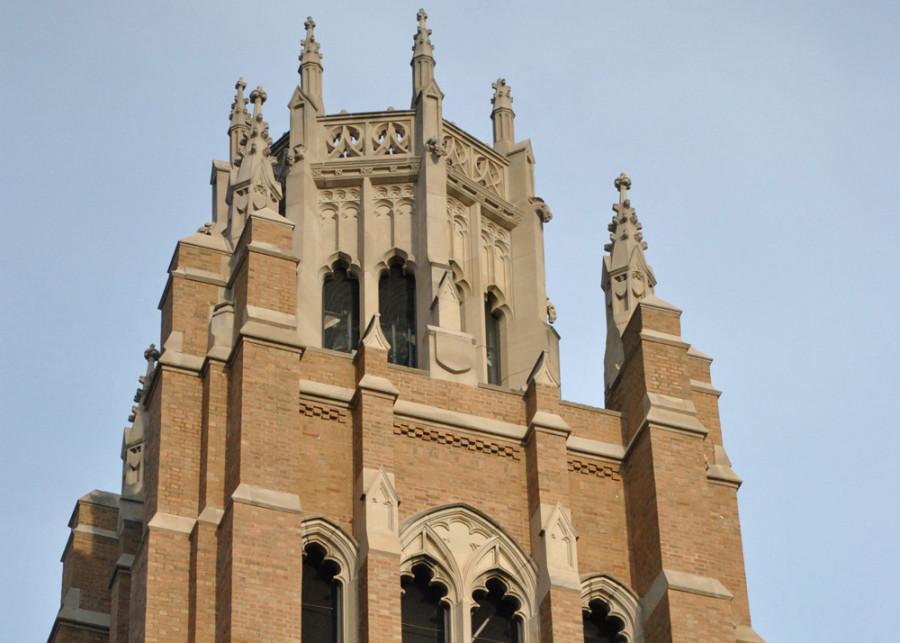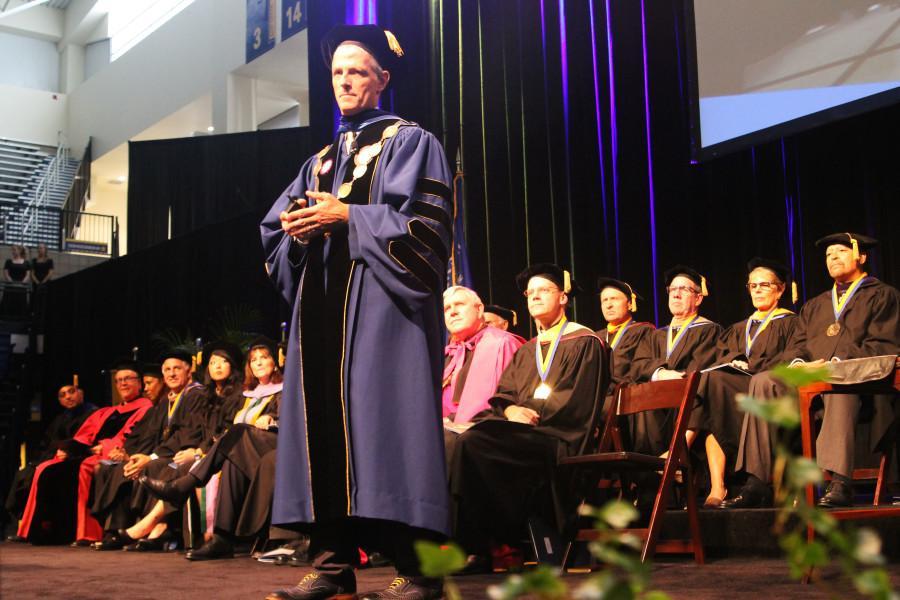
The inauguration ceremony of Marquette’s 24th president Michael Lovell took place this past Friday after days of build up and celebration. In the hullabaloo of pomp and circumstance, Lovell announced upcoming changes for the university, including new innovation initiatives, Milwaukee partnerships and a campus expansion.
Lovell’s plan shows he has actively sought out new ways to advance the university since he first began fulltime on campus in July. His relationships formed during his time as chancellor of University of Wisconsin-Milwaukee benefit his new university’s mission.
The proposed partnerships with the Global Water Center in the Fifth Ward, the Innovation Campus in Wauwatosa and the Medical College of Wisconsin demonstrate the diverse connections Lovell established within the Milwaukee area and how the interests of many will be pursued going into the future. Initiatives within the university through a strategic innovation fund and a Center for the Advancement of the Humanities account for other areas where the university supports students and faculty.
These are opportunities for the university, and Lovell is predominantly responsible for involving Marquette. His ability to forge connections and partnerships is one of his most desirable qualities as president, and while we can thank him for his hard work to establish these opportunities, it is up to the rest of the university to solidify and pursue them to their fullest extent.
Marquette and the surrounding community must give their input and support as new initiatives are put into motion. Lovell has set up desirable circumstances, and we as Marquette affiliates need to help figure out how far we can go with them.
The new land acquisition at Marquette is a perfect example of expected but not fully established changes. There is no set plan for the land’s use, so the university has a chance to speak up about what it wants to see added to Marquette’s constantly developing campus. The possibilities are set up, and we need to figure out how we as a campus want to take advantage of them to progress in our mission.
Lovell established connections with the Global Water Center and the Innovation Campus, but there is still room for greater input from students and faculty. A campus-wide discussion will take place Oct. 2 to hash out the details, and people must take part in the initiatives to meet the interests of the university.
It is up to students and faculty to help guide the establishment of a Center for the Advancement of the Humanities as well. Lovell will assuredly be involved, but he will need assistance from different humanities departments and associated individuals to figure out what this center can do to become a renowned institution for the humanities and how that will benefit students and faculty in the long-run. The intention is there, but there needs to be continued participation in order for it to thrive. The same goes for the strategic innovation fund as the participation of students and faculty are pivotal to its usefulness and success.
President Lovell is putting a great deal of thought and energy into bringing together all these opportunities, and now is the time to figure out how the university can take advantage of them and continue to progress in the short- and long-term.




